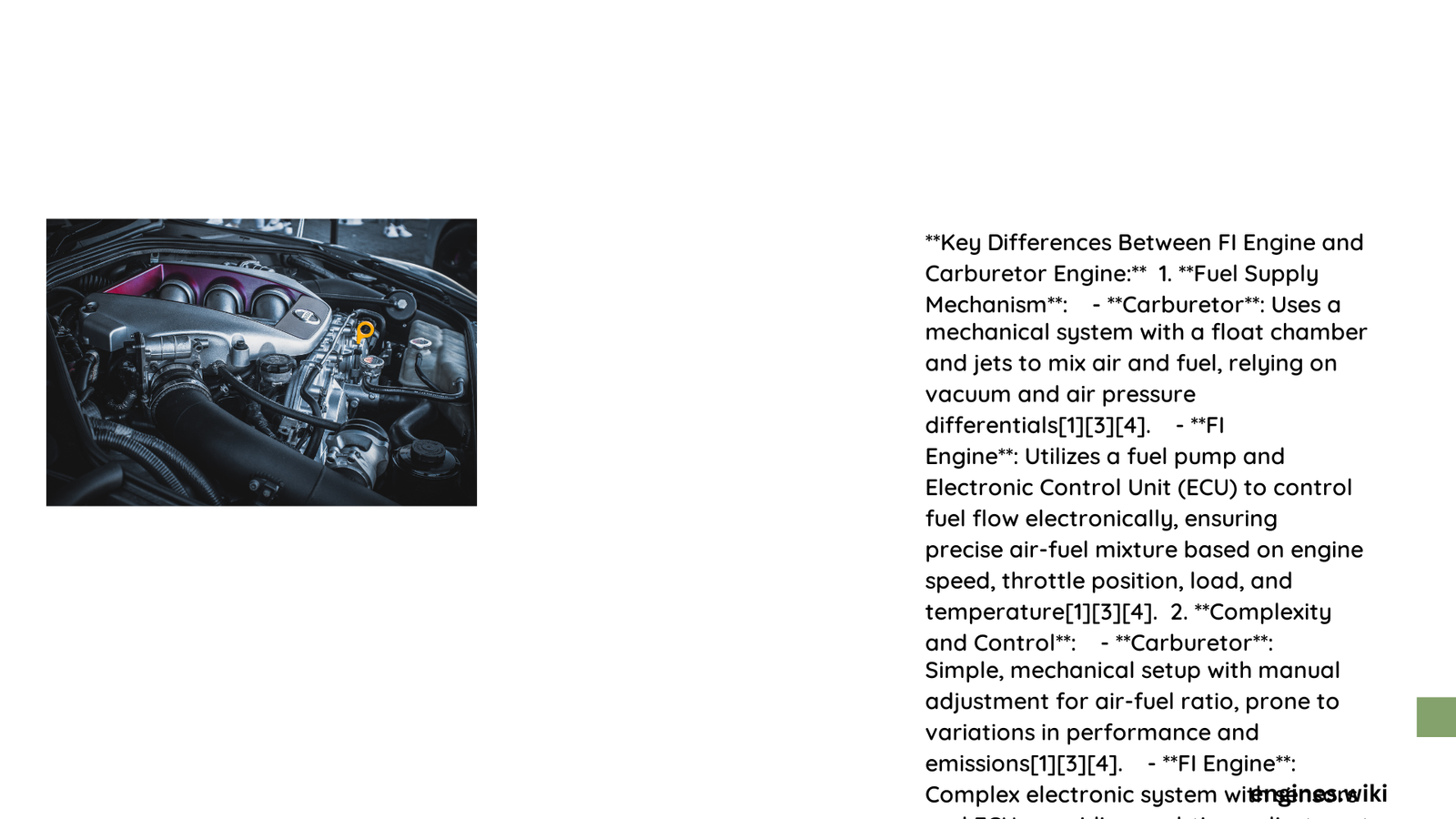Modern automotive technology has dramatically transformed engine performance through advanced fuel delivery systems. The difference between fuel injection (FI) and carburetor engines represents a significant technological leap, fundamentally changing how vehicles generate power, consume fuel, and manage combustion efficiency. This comprehensive analysis explores the intricate mechanical, operational, and performance variations between these two engine technologies, providing automotive enthusiasts and professionals with deep insights into their functional characteristics.
What Makes Fuel Delivery Methods Different?
How Do Carburetors Mix Fuel and Air?
Carburetors utilize a mechanical approach to fuel mixture preparation:
– Uses venturi effect to draw fuel into airstream
– Relies on mechanical air pressure variations
– Requires manual jet adjustments
– Less precise fuel-air ratio control
How Do Fuel Injection Systems Operate?
Fuel injection systems represent a more advanced technological approach:
– Electronic fuel pump delivers precise fuel quantities
– Computer-controlled fuel injectors
– Real-time mixture adjustment
– Highly accurate air-fuel ratio management
Performance Comparison: Which System Delivers Better Results?

Horsepower and Torque Differences
| Parameter | Carburetor Engine | Fuel Injection Engine |
|---|---|---|
| Horsepower | Lower (10-15% less) | Higher precision |
| Torque | Mechanical limitations | Enhanced electronic control |
| Acceleration | Slower response | Quicker throttle reaction |
Efficiency Metrics
Fuel injection engines demonstrate superior efficiency across multiple parameters:
– 20-30% improved fuel economy
– Lower emissions
– More consistent performance across temperature ranges
– Enhanced thermal efficiency
Maintenance and Diagnostic Challenges
What Maintenance Complexities Exist?
Carburetor Engines:
– Require frequent manual adjustments
– Simpler mechanical components
– Lower replacement part costs
– More user-serviceable
Fuel Injection Engines:
– Advanced electronic diagnostics
– Specialized repair requirements
– Higher component replacement expenses
– Computerized error tracking
Technical Complexity Breakdown
Precision of Air-Fuel Mixture Control
Fuel injection systems revolutionized engine management through:
– Continuous real-time monitoring
– Instantaneous mixture adjustments
– Multiple sensor input integration
– Adaptive learning algorithms
Electronic vs. Mechanical Control
The fundamental difference lies in control mechanisms:
– Carburetors: Mechanical pressure-driven
– Fuel Injection: Computer-controlled precision
Economic and Environmental Considerations
Cost of Technology Adoption
- Initial carburetor system cost: Lower
- Fuel injection system investment: Higher
- Long-term operational savings: Favors fuel injection
- Emission compliance: Strongly supports fuel injection
Future of Engine Technology
Technological Evolution
The automotive industry continues moving towards:
– More sophisticated fuel injection systems
– Hybrid and electric propulsion
– Enhanced computational control
– Improved environmental sustainability
Key Takeaways
- Fuel injection represents a significant technological advancement
- Provides superior performance and efficiency
- Offers more precise engine management
- Supports stricter environmental regulations
References:
1. SAE International Automotive Engineering Journal
2. Society of Automotive Engineers Technical Papers
3. International Automotive Research Publications
